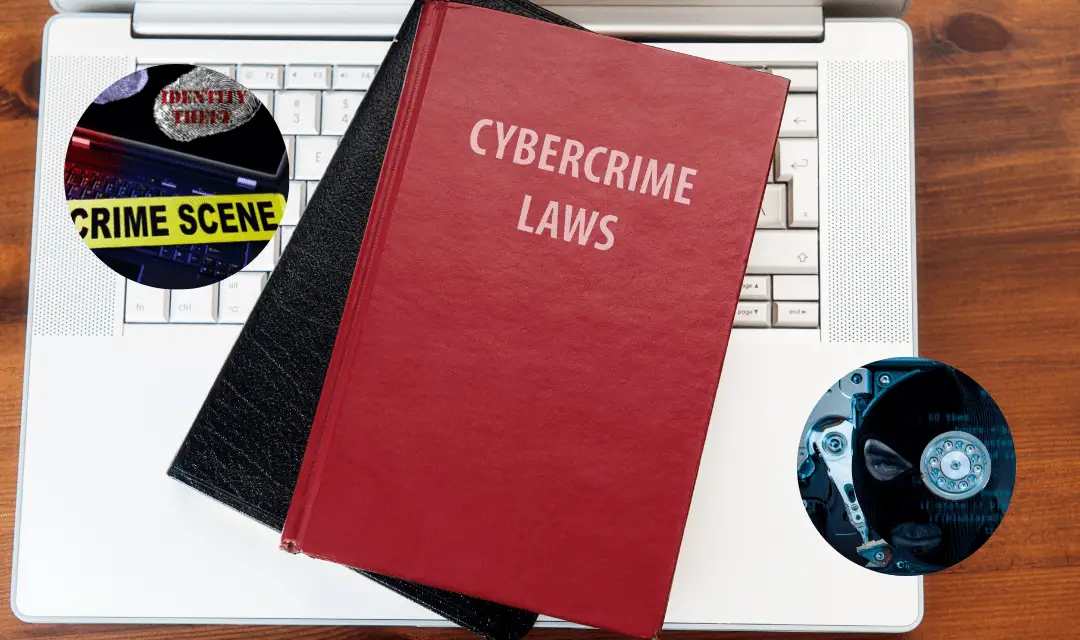Cybercrime laws are legislations that set the offenses and penalties for cybercrimes in order to make one liable for their wrong doings using the cyberspace. Cybercrime is define as the crimes or wrongful acts directed and committed through the use of computers, information communication technologies, or data.
The Cybercrime Prevention Act of 2012, also known as Republic Act No. 10175,1 is the foremost Statute in the the Philippines. Its purpose is to direct certain legal issues concerning the use of cyberspace, online interactions, and the usage of Internet in the Philippines since the advancement of technology is a fast becoming trend in the Philippines.
It also provides for punishment relative to the wrongful and unlawful acts done through the use of cyberspace.
RA 10175 gave the National Bureau of Investigation and the Philippine National Police the responsibility for the enforcement of the law, however, the Department of Justice (DOJ) is tasked to establish an Office of Cybercrime on concerns engages to international mutual assistance and extradition.
What crimes are punishable under RA 10175?
Among the crimes which are punishable under the Republic Act No. 101752 are the following:
a] cybersex,3
b] libel or defamation using the cyberspace,4
c] child pornography,5 and
d] offenses against the strict confidentiality, integrity and availability of computer data and information6 such as
d.1] illegal access7 and interception,8
d.2] interference of data,9 interference of the system,10
d.3] incorrect use of devices,11
d.4] computer related offenses,12
d.5] cyber-squatting,13 any computer-related theft of Identity,14
d.6] those unsolicited commercial communications,15 and
d.7] computer-related fraud,16 computer-related forgery17
e] other offenses,18 such as:
e.1] Aiding or Abetting in the Commission of Cybercrime19
e.2] Attempt in the Commission of Cybercrime20
f] felonies under the Revised Penal Code, where cyberspace is used for the commission thereof21
What does RA 10175 intend to protect?
Republic Act 10175 intends to protect consumers who are dependent on cyber laws to safeguard them from online fraud or identity theft.
This Law is made to prevent identity theft, fraud and theft using the credit card and other financial and commercial crimes that usually happen online.
It also safeguards the children from child pornography and trafficking using the cyberspace. Last, of course, it protects the individual’s privacy and information and it respects the dignity of a person, thus, penalizing malicious imputations.
What is the importance of RA 10175?
Republic Act 10175 is important to sufficiently deter cyber-offenders and to safeguard the Philippines’ cyberspace. It is essential to monitor the potential crimes which may be possible to be committed using the availability of the cyberspace and advancement of the technology in the country.
This is to support the law enforcements efforts against computer crimes especially after the controversial “I love you” virus and other subsequently similar ones.
What law enforcement authorities are responsible for implementation RA 10175?
The law provides that the following are the law enforcement authorities tasked to implement the Cybercrime Act. The law has given the National Bureau of Investigation (NBI) as well as the Philippine National Police (PNP) the assignment to efficiently and effectively implement the provisions listed in the Act.
The NBI and the PNP shall also sort out a cybercrime division or unit to be managed by the Special Investigators in order to handle cases involving violations of the aforementioned Act.
The NBI shall also establish a cybercrime unit to be lead by at least a Head Agent. The PNP is also responsible in creating an anti-cybercrime division headed by a Police Director.
Why is there a need for cybercrime law?
There is a need to create a cybercrime law because cybercrime causes a real and extreme threat to every Filipino’s human right and livelihood.
It is also needed to support the wide efforts of the authorities to address the matters it needs to protect. On the other hand, governments should fight overbroad and aggressive cybercrime methods which threaten human rights.
The authorities have analyzed the vital risks to freedom of expression and privacy using the cyberspace and it poses a real danger to humanity without a law that would control and prohibit such dangers.
How does electronic evidence rule affect or complement RA 10175?
Electronic Evidence Rule are set of regulations as regards to the evidence used in judicial proceedings that originates from electronic devices like computers, cellphones, and its peripheral devices such as computer networks, digital cameras, and any other mobile devices which includes the data storage devices in all forms.
This evidence is not really dissimilar from the traditional evidence that are essential for the party to produce it into legal proceedings.
It affected the RA 10175 by simply adapting to the issues being addressed by such law. On procedural matters, there are additional authentication methods in order for such evidence to be admissible.
These electronic evidence are the same material used by the offender to perpetrate his crime so it would be easier to point out the offender and the crime he violated under the cybercrime Act.
How does RA 10175 affect social media?
Republic Act 10175 affected the social media by providing safeguards and limitations to whatever we post and whatever messages we sent online.
While it is true that we have a freedom of expression and speech, however, such is not absolute and poses certain limitations that we need to observe. We have to remember that in every right we possess, there is an equivalent responsibility.
How do you prosecute online illegal activities using RA 10175?
Pursuant to Section 20, Chapter IV of RA 10175, failure to comply with the provisions of Chapter IV, specifically the orders from law enforcement authorities, shall be punished as a violation of Presidential Decree No. 1829, entitled ‘Penalizing Obstruction Of Apprehension And Prosecution Of Criminal Offenders.’
The criminal charge for obstruction of justice shall be filed before the designated cybercrime court that has jurisdiction over the place where the non-compliance was committed.
More importantly, even the High Court has promulgated rules for the issuance of special seizure warrants for specific cybercrime offenses.22
On a more granular level, the prosecution for those offenses are still similar with what we usually do. We determine if it is an in flagrante delicto act or the same that is subjected to full blown preliminary investigation.
However, both require probable cause to indict the the offender before the proper tribunal, which is now being progressively created as cybercrime courts.
How do you preserve the electronic evidence for the purpose of prosecution under RA 10175?
The law provides that Electronic evidence refers to evidence, the use of which is sanctioned by existing rules of evidence, in ascertaining in a judicial proceeding, the truth respecting a matter of fact, which evidence is received, recorded, transmitted, stored, processed, retrieved or produced electronically.23
The law also provides that the integrity of traffic data and subscriber information shall be kept, retained and preserved by a service provider for a minimum period of six (6) months from the date of the transaction.24
Content data shall be similarly preserved for six (6) months from the date of receipt of the order from law enforcement authorities requiring its preservation.25
Law enforcement authorities may order a one-time extension for another six (6) months: Provided, That once computer data that is preserved, transmitted or stored by a service provider is used as evidence in a case, the mere act of furnishing such service provider with a copy of the transmittal document to the Office of the Prosecutor shall be deemed a notification to preserve the computer data until the final termination of the case and/or as ordered by the Court, as the case may be.26
What is the effect of violation of certain provisions of the Revised Penal Code through the use of internet, social media, digital platform?
The violation of the certain provisions of the Revised Penal Code through the use of internet, social media or digital form may also constitute a violation of the Republic Act 10175.
For instance, the offender violated the provisions of libel through the use of cyberspace, then that may be a violation of Republic Act 10175 and he may be liable as such.
How can the Data Privacy Act affect RA 10175?
Violation of Data privacy is considered as a cybercrime. Although both laws are confusing with which law must be applicable, data privacy Act widens the possible act which may be punishable thereof.
While data privacy is being protected in cyber crime law however, the Data Privacy Act comprises the specific Acts which shall be punishable under the law.
How will an online gambling violate the provision of RA 10175?
Internet gambling has shown a wide range of struggles referring to its validity and acceptability by the society and the government, the regulation of use, and possibility of abuse.
If evidently discovered that the offenders are operating illegal activities under the guise of a legal business, additional criminal case may be charged against him and that includes the violation of the Republic Act 10175.
Unregulated online gambling also falls within the provisions of the the Cybercrime Law.
Does RA 10175 apply also to violations of other Special Penal Laws?
Yes. For instance in Data Privacy Act, the law provides that it is a law that seeks to protect all forms of information, be it private, personal, or sensitive. It is meant to cover both natural and juridical persons involved in the processing of personal information.
This Act applies to the processing of all types of personal information and to any natural and juridical person involved in personal information processing including those personal information controllers and processors who, although not found or established in the Philippines, use equipment that are located in the Philippines, or those who maintain an office, branch or agency in the Philippines subject to the immediately succeeding paragraph: Provided, That the requirements of Section 5 are complied with. These information being covered may also be part of the cyberspace.27
What is the effect upon the penalties under the Revised Penal Code when certain provisions of the latter have been violated through cyber acts?
The law provides that all crimes defined and penalized by the Revised Penal Code, as amended, and special laws, if committed by, through and with the use of information and communications technologies shall be covered by the relevant provisions of this Act: Provided, That the penalty to be imposed shall be one (1) degree higher than that provided for by the Revised Penal Code, as amended, and special laws, as the case may be.28
What is the prescription of Cybercrime Libel?
Our Revised Penal Code states that the prescription for the libel is one year. On the other hand, the crime of slander by deed and oral defamation shall prescribe in six months.
Hence, the question is: will the one year prescriptive period also apply to cybercrime libel? There has yet been no categorical answer to this point.
Nonetheless, since cybercrime libel is an amendment only of the provision in the Revised Penal Code in relation to the felony of libel, we believe that the one year prescriptive period will apply also to cybercrime libel. This will likewise be in keeping with the doctrine of pro reo.
What has been decided
Under the overbreadth doctrine, a proper governmental purpose, constitutionally subject to state regulation, may not be achieved by means that unnecessarily sweep its subject broadly, thereby invading the area of protected freedoms.29
But Section 4(a)(3) does not encroach on these freedoms at all. It simply punishes what essentially is a form of vandalism, the act of willfully destroying without right the things that belong to others, in this case their computer data, electronic document, or electronic data message.30
Such act has no connection to guaranteed freedoms. There is no freedom to destroy other people’s computer systems and private documents.31
Whether emailing or, as in this case, sending emails to the persons named in the Information—who appear to be officials of Subic Bay Metropolitan Authority where Subic Bay Marine Exploratorium is found—is sufficiently “public,” as required by Articles 353 and 355 of the Revised Penal Code and by the Anti-Cybercrime Law, is a matter of defense that should be properly raised during trial.32
Closing Perspective
The cybercrime law may have been created to deter wrongful acts using the cyberspace. May one of the catalysts that propels the enactment of the said statute was the creation of the ‘I love you’ virus.
It caused billions of losses around the world not only in the Philippines. Nonetheless, the perpetrator was acquitted because there is no law punishing such act during that time.
Aside from that, a lot of scandalous acts which really destroyed someone’s image has been spread using the social media and the internet. Consequently, the Anti-Cybercrime Act must be implemented to protect our rights as an internet and technology users.
- RA 10175[↩]
- Sections 4, 5, and 6 of RA 10175[↩]
- Section 4[c][1][↩]
- Section 4[c][4][↩]
- Section 4[c][2][↩]
- Section 4[a][↩]
- Section 4[a][1][↩]
- Section 4[a][2][↩]
- Section 4[a][3][↩]
- Section 4[a][4[↩]
- Section 4[a][5][↩]
- Section 4[b][↩]
- Section 4[a][6][↩]
- Section 4[b][3][↩]
- Section 4[3][c][↩]
- Section 4[b][1][↩]
- Section 4[b][2][↩]
- Section 5[↩]
- Section 5[1][↩]
- Section 5[2][↩]
- Section 6[↩]
- SC sets rules on issuance of warrants for Cybercrime law[↩]
- Section3[u], Definition of Terms, IRR of RA 10175[↩]
- Section 12, IRR of RA 10175[↩]
- Id.[↩]
- Id.[↩]
- Data Privacy Act, Section 4, RA 10173[↩]
- Supra., Section 6, RA 10175[↩]
- Disini vs. Secretary of Justice, et al., G.R. No. 203335, February 11, 2014[↩]
- Ibid.[↩]
- Ibid.[↩]
- Virginia Dio vs. People, G.R. No. 208146, June 08, 2016[↩]




